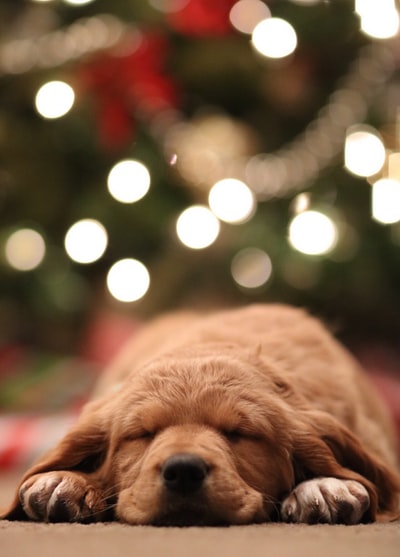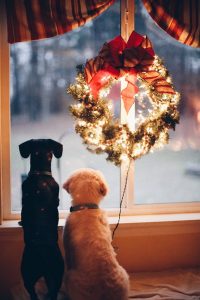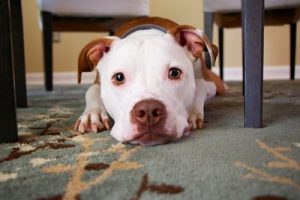Snow Joke for Pets

As Christmas approaches there are a lot of changes in our houses including lots of tasty food. This doesn’t go unnoticed by our furry friends and their very inquisitive noses. As pet owners there are several food items that we need to pay particular attention to during the festive period.
Chocolate and raises are two of these and are found in many Christmas treats! I have previously mentioned the concern over chocolate and the fact it contains Theobromine. Theobromine can cause gastrointestinal upset, heart disturbances and tremors. Dark chocolate is the main culprit but milk chocolate and even white chocolate can be equally worrying especially some of the more high quality products. If your pet has eaten chocolate, please phone your veterinary practice for advice over whether they require treatment for the amount they have eaten.
Grape toxicity is very specific to individuals. As a toxic does has not yet been established, if you dog happens to eats grapes/sultanas/raisins in any quantity it is advised to gain veterinary advice as emptying their stomach and fluid therapy is advised.
There are also several plants that are commonly used to decorate our homes at Christmas. Poinsettia, mistletoe, holly, ivy and Christmas tree pine needles are all of low toxicity if chewed but may cause gastrointestinal upset (vomiting and diarrhoea). If this persists or you have any further concerns gain veterinary advice.
For further advice on poisons go to: vpisglobal.com or call Animal Poison Line on 0120 250 9000
New Year is also the season of many fireworks. They can be a source of much anxiety to many of our pets.
Top Tips for firework anxiety:
- Keep your pets indoors during times of fireworks
- Making sure they have had a good walk before dark and a big meal can help make them relax and feel sleepy
- As hard as it is, allow them to pace, bark/miaow, and hide if they wish to. Reassuring them too much at this point can actually confirm to them that it is a scary event, whereas they will benefit more from you staying calm and acting normal
- Give lots of praise for calm behaviour
- Making sure they have a “safe place/den” that they can hide in if they wish to
- Closing curtains and leaving the TV or radio on can help block the noise of the fireworks
- Although not a quick fix desensitisation soundtracks can also help
- Spray or plug in pheromones are readily available and can be very useful in milder cases of noise phobias to reduce anxiety
- In severe cases your vet may be able to prescribe prescriptions drugs to help







